View this article on our brand new website: http://politicsbulletin.co.uk/london-mayoral-election-2016-candidate-rosalind-readhead/
The London Mayoral election is less than three months away and media outlets across the UK are unquestionably expecting it to be a two-horse race between the Labour and Conservative candidates – Sadiq Khan and Zac Goldsmith, respectively.
However, writing for Politics Bulletin, Iain Fenton and Manuel Tenga take a look at the candidates outside of the ‘top two’ and question whether or not Londoners should instead use their votes to facilitate change in London whilst at the same time, moving away from the ‘status quo’.
“I am proposing a vision that may seem radical, but will address the serious issues, free from interference” explains Rosalind Readhead from her small London flat in Islington.
Rosalind Readhead is not your stereotypical London based politician, quite the contrary. She is not a career politician, a badge of honor it would appear in our contemporary society. She positively values her role as a mother of three and the 53 year old artist and textile designer describes herself as a ‘creative big thinker with a practical, critical and no-nonsense attitude.’
With the bookies are pricing her at 500/1, Rosalind knows that she is an outsider in the London Mayoral race. Although lacking the extensive resources accustomed to most London Mayoral candidates, Rosalind maintains that her first priority is to open up the debate surrounding the health issues of Londoners and after that objective is achieved she maintains that ‘anything could happen.’

Mother of three Rosalind is eager to make a significant difference for the people of London
“If I can explain to Londoners the urgency of the crises we face and provide them with some serious choices, then I have succeeded in opening up the debate. And if there is a growth in support for my policies, then I will aim to go as far as possible in the Mayoral election.”
In her unique position as an independent candidate, Readhead does not hide her frustration with the current mayor of London, Boris Johnson, she is undoubtedly unhappy with the direction in which her home city of London is heading.
“During Boris Johnson’s two terms as Mayor, 75,000 are estimated to have died prematurely from air pollution, predominately from road transport. Not only has this impacted hugely on the health of Londoners, but fuel consumed by transport is directly linked to CO2 emissions, contributing to global warming.”
Readhead is basing her election candidacy on an environmentally friendly platform -in 2014 the independent candidate launched her website ‘Ban private cars in London’ and has been vigorously campaigning for a more environmentally friendly London. Air pollution, obesity and global warming are high on her agenda.
“The health of Londoners is the number one issue and is one that can be resolved successfully with current Mayoral powers,” she explains. “Inactivity is killing 1 in 6 in the UK and half of Londoners are either obese or overweight. 1 in 10 Londoners in Brent and Newham have diabetes. Air pollution is a killer.This is a health time bomb.”
The World Health Organisation has called air pollution a ‘global health emergency.’ Some have advertised that her position on pollution levels and perspective of climate change are closely aligned with Green Party policy.
“Addressing air pollution is a public health emergency. I will address it with focused and bold policies; emergency car bans on high air pollution days, banning private cars in central London, banning diesel in Greater London and re-allocating road space from cars to clean transport such as cycling.
“My main policy to ease overcrowding on the tube is to unlock space on the public highway by banning private cars in central London and introduce 24 hour road pricing throughout Greater London.
“This space will then be re-allocated to segregated bike lanes on the main arteries and even whole roads just for bicycles. I want to create a London where active travel such as cycling and walking are prioritised.
“Winston Churchill once said that ‘Healthy citizens are the greatest asset this country can have.’ 75% of the Mayoral budget is for transport, and strategically, prioritising active travel such as walking into London’s infrastructure will pay dividends for the future health of our city and the environment.”
Although cycling infrastructures alone cannot completely solve our health crisis, the recent Volkswagen scandal adds weight to some of Rosalind’s arguments and highlights the dangers of air pollution. Another thorn is the third runway at Heathrow airport which adds significantly to the levels of pollution, pushing air quality further beyond the legal limit. Some argue that the vehicles which cause the most pollution are cars that run on diesel which emit up to four times more toxic pollution than a bus. Furthermore, the 306 New Routemaster buses which were introduced as ‘green’ by current mayor of London Boris Johnson, despite having been proving to be emitting worse fumes than the older buses, have recently been called “London’s dirtiest, most polluting buses” and will be exempt from traveling from 2020 due to new pollution guidelines.
It is clear that Readhead’s policies will not necessarily be to every ones tastes, it is argued that the suggestion to ban cars from central London infringes on people’s individual freedoms. The fact remains, over half of the British population and the majority of households in London own a car. But the statistics show car owners are more likely to suffer from obesity. For Readhead, however, it is imperative that through her policies, she is able to spread the word of the ‘public health crisis’ that has already arrived in London – and she is adamant that she will be able to do more for the people of London as the Mayor of London due to her independence as she will not have the shackles of party politics to pin her down.

Rosalind Readhead is not weighed down by the anvil of party politics
“As an Independent candidate, I can freely speak my mind. This gives me the ability to retain my integrity without pressure from the party machine. I have also experienced a wide range of cultural influences, having been in care, fostered and then adopted,” explains Readhead.
“Sadiq Khan, Zac Goldsmith, Caroline Pidgeon and even Sian Berry are all signed up to the much wider national policies of their respective parties which inhibits their ability to put Londoners first.”
Readhead further alludes to the notion that many politicians do not always seek what is best for the public and instead seek what is best for corporate interests, she says, “They may claim ‘independence’ but major political parties use figureheads such as the Mayor of London to support and publicise their national objectives – very worryingly, some political party interests have become alarmingly aligned to powerful corporate lobbyists, both in the media and in industry.”
The voters know they are voting for an individual rather than a specific political party therefore there is greater expectation for accountability. However, most politicians advocate for transparency yet very few stand up to the mark once elected, furthermore they are not held accountable when they fail to deliver on their campaign pledges – their failed pledges are more often than not simply forgotten about.
An assertive Readhead proposes plans to scrap car parks and “review how we allocate space in London” she adds “I would like to designate car parks as brownfield sites to build social housing for key workers.” With regard to home ownership she acknowledges that it is a complex systemic issue. However, she does not inform much by way of figures and potential costs, she instead drives attention to prohibit the buy-to-leave scheme and build social housing on designated brownfield sites. To keep housing for Londoners she proposes “we stipulate a five year residency as enforced in Copenhagen.” Another scheme Readhead wants to adopt from Copenhagen is the national bike promotion as a better alternative to cars. Air pollution will put our generation at risk, nitrogen dioxide is bad for our health a high percentage of people are expected to die every year due to air pollution.
Clearly, Readhead is standing as an election candidate in order to make a real and substantial difference to the people of London, she says,”As Mayor of London I want to lead the way with focused, clear objectives to cut emissions alongside Mayors around the world.”
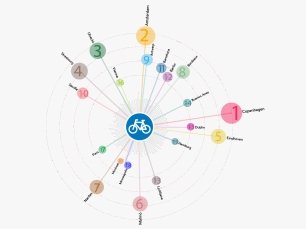
The worlds most bike friendly cities – will London ever be on this graph?
Regarding her pro-environment policies, Readhead indisputably wants Britain to pull its head out of the sand and strive to save the planet for future generations before it’s too late – and one day it really will be too late if environmental concerns are not met with a degree of haste. One thing is clear, the issues she campaigns for cannot be ignored. Rosalind has a strong conviction and clear stance on many single-issues unlike many politicians in the Westminster village. Other major European cities such as Copenhagen and Amsterdam successfully maintain bike friendly policies so maybe it is time for us Londoners to get on our bikes too.
‘Only when the last tree has been cut down, the last fish caught, the last river poisoned, only then will we realize that one cannot eat money.’ – Cree Indian Prophecy



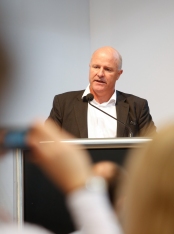 Ohnemus, who’s company
Ohnemus, who’s company 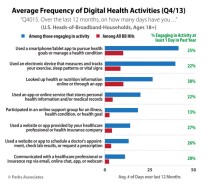
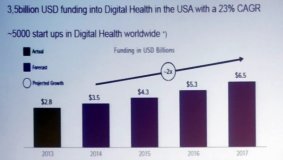

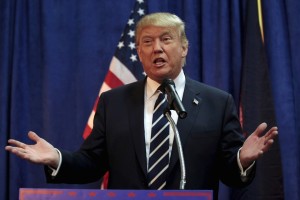 In Europe we are currently undergoing a major migrant crisis which to some extent has influenced David Cameron’s decision to pander to the dissatisfied-wing of his party who want Britain to push for a referendum. We have closet euro sceptics in the Tory party who are gagged from airing their personal views on the issues; it has become a complicated battle of compromise, hypocrisy and cynicism. Trump has spoken freely of his desires to control the borders but his words have been divisive and destructive. He has conjured and moulded a negative image of Mexicans and Muslims – although America has had sceptical opinions of both of these populations for many years now. The Black population publicly suffer from racism. In the past racism was rampant and vicious against the Chinese who were marginalised and isolated. In 1882 President Chester A Arthur enacted the Chinese Exclusion Act in order to prevent Chinese labourers coming into the country. It is understandable that when arriving as an immigrant to another country one should attempt to adapt and assimilate but it seems that many U.S. citizens feel immigrants coming into ‘their’ country have to be ‘Americanized’ in order to fit in. Should one have to shed a little bit of their culture, heritage and even religion in order to be accepted into Trump’s ideal America?
In Europe we are currently undergoing a major migrant crisis which to some extent has influenced David Cameron’s decision to pander to the dissatisfied-wing of his party who want Britain to push for a referendum. We have closet euro sceptics in the Tory party who are gagged from airing their personal views on the issues; it has become a complicated battle of compromise, hypocrisy and cynicism. Trump has spoken freely of his desires to control the borders but his words have been divisive and destructive. He has conjured and moulded a negative image of Mexicans and Muslims – although America has had sceptical opinions of both of these populations for many years now. The Black population publicly suffer from racism. In the past racism was rampant and vicious against the Chinese who were marginalised and isolated. In 1882 President Chester A Arthur enacted the Chinese Exclusion Act in order to prevent Chinese labourers coming into the country. It is understandable that when arriving as an immigrant to another country one should attempt to adapt and assimilate but it seems that many U.S. citizens feel immigrants coming into ‘their’ country have to be ‘Americanized’ in order to fit in. Should one have to shed a little bit of their culture, heritage and even religion in order to be accepted into Trump’s ideal America?